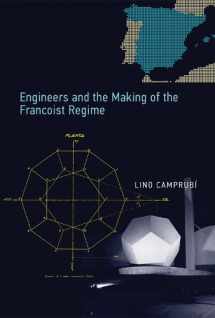
Engineers and the Making of the Francoist Regime (Transformations: Studies in the History of Science and Technology)
Book details
Summary
Description
How engineers and agricultural scientists became key actors inFranco's regime and Spain's forced modernization.
In this book, Lino Camprubí argues that science and technology were at the very center of the building of Franco's Spain. Previous histories of early Francoist science and technology have described scientists and engineers as working “under” Francoism, subject to censorship and bound by politically mandated research agendas. Camprubí offers a different perspective, considering instead scientists' and engineers' active roles in producing those political mandates. Many scientists and engineers had been exiled, imprisoned, or executed by the regime. Camprubí argues that those who remained made concrete the mission of “redemption” that Franco had invented for himself. This gave them the opportunity to become key actors―and mid-level decision makers―within the regime.
Camprubí describes a series of projects across Spain undertaken by the civil engineers and agricultural scientists who placed themselves at the center of their country's forced modernization. These include a coal silo, built in 1953, viewed as an embodiment of Spain's industrialized landscape; links between laboratories, architects, and the national Catholic church (and between technology and authoritarian control); vertically organized rice production and research on genetics; river management and the contested meanings of self-sufficiency; and the circulation of construction standards by mobile laboratories as an engine for European integration. Separately, each chapter offers a fascinating microhistory that illustrates the coevolution of Francoist science, technology, and politics. Taken together, they reveal networks of people, institutions, knowledge, artifacts, and technological systems woven together to form a new state.


We would LOVE it if you could help us and other readers by reviewing the book
Book review



